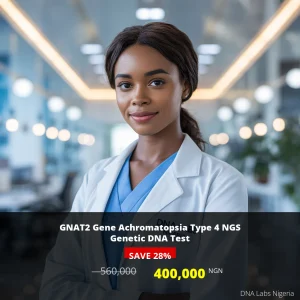AHCY Gene Hypermethioninemia with Deficiency of Sadenosylhomocysteine Hydrolase NGS Genetic DNA Test
Introduction
The AHCY Gene Hypermethioninemia with Deficiency of Sadenosylhomocysteine Hydrolase NGS Genetic DNA Test is a crucial diagnostic tool in the field of genetics and pediatrics. This test utilizes Next-Generation Sequencing (NGS) technology to analyze mutations in the AHCY gene, which plays a vital role in methionine metabolism. Understanding the genetic basis of hypermethioninemia is essential for early diagnosis and management of patients, particularly in pediatric populations.
What the Test Measures
This genetic test measures the presence of mutations in the AHCY gene, which can lead to a deficiency of Sadenosylhomocysteine hydrolase, resulting in elevated levels of methionine in the blood. By identifying these mutations, healthcare providers can gain insights into the underlying causes of hypermethioninemia.
Who Should Consider This Test
Individuals who may benefit from this test include:
- Patients exhibiting symptoms of hypermethioninemia, such as developmental delays or neurological issues.
- Those with a family history of genetic disorders related to methionine metabolism.
- Newborns who have failed newborn screening tests related to metabolic disorders.
Benefits of Taking the Test
Taking the AHCY Gene Hypermethioninemia test offers several benefits:
- Early diagnosis of genetic disorders, enabling timely intervention and management.
- Informed family planning and genetic counseling for affected families.
- Personalized treatment plans based on genetic findings.
Understanding Your Results
Results from the AHCY Gene Hypermethioninemia test will indicate whether mutations are present in the AHCY gene. A genetic counselor will provide guidance on the implications of the results, discussing potential health impacts and management strategies.
Test Pricing
| Test Name | Discount Price | Regular Price |
|---|---|---|
| AHCY Gene Hypermethioninemia with Deficiency of Sadenosylhomocysteine Hydrolase NGS Genetic DNA Test | 400,000 NGN | 560,000 NGN |
Book Your Test Today!
To ensure timely diagnosis and management, book your AHCY Gene Hypermethioninemia with Deficiency of Sadenosylhomocysteine Hydrolase NGS Genetic DNA Test today! Contact us at +2348110567037 via call or WhatsApp.
Turnaround time for results is approximately 3 to 4 weeks, and the sample type required is blood. Prior to the test, please ensure you have a clinical history of the patient and consider a genetic counseling session to draw a pedigree chart of family members affected with AHCY Gene Hypermethioninemia.







